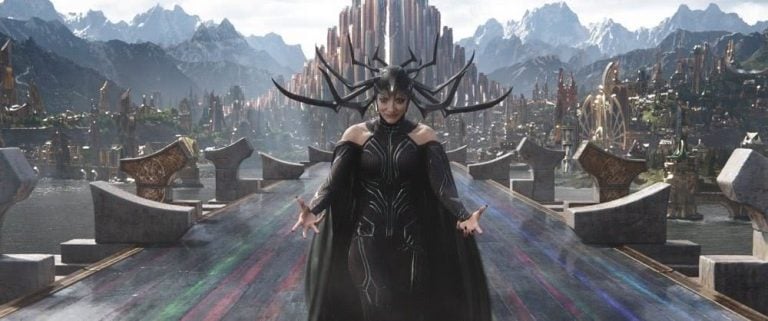The dominance of the Marvel Cinematic Universe (MCU) and, more recently, the attempts made by the DC Extended Universe (DCEU) to catch up has seen a glut of high quality superhero movies hit our screens over the past decade. As audiences, we don’t seem to care much that three or so decent films come out each year based around heroes with superhuman abilities – although it must be said, prior to 2008’s Iron Man, the first film in the current MCU, superhero content on the big screen produced just as many misses as hits.
Since 2008, Marvel have amassed 17 films in their complicated universe, and these are being dropped with an ever increasing delivery speed. If you include the Christopher Nolan Batman Trilogy that preceded the official establishment of the DCEU, DC have released seven of their own, with their response to Marvel’s Avengers hitting cinemas this fortnight in the form of Justice League.
Why aren’t we sick of the ever-flowing and seemingly infinite amount of superhero content?
Oh, and don’t forget the X-Men franchise, which barring some early films of mixed quality, has released seven largely well-received films since 2009 (including Deadpool). Across these three franchises, there are 16 more planned releases between now and 2020 – so why aren’t we sick of the insane amount of superhero content?
At this point one may well say, “Well, just because the quantity of films is increasing, that doesn’t mean the world cares and is going to see all these films.” However, the fact is this year has seen the Disney-owned Marvel Studios becoming the first movie studio in history to release three films with US $100 million openings in a single calendar year: Guardians Of The Galaxy Vol. 2, Spider-Man: Homecoming and more recently, Thor: Ragnarok.
It’s not only the box office popularity that shows how superior these films have become, but also their critical reception. Movie critic website Rotten Tomatoes recently updated its rankings for the best superhero movies of all time, and according to its metric, five out of the top ten superhero movies of all time were released this year.
It’s easy to see why some of these films have produced such great responses. Hugh Jackman has just about been the only constant character in the X-Men franchise over almost two decades, and Logan, his farewell to one of the greatest superheros ever, was always going to draw crowds.
Love Film & TV?
Get your daily dose of everything happening in music, film and TV in Australia and abroad.
Similarly, Wonder Woman, directed by Patty Jenkins and starring the incredible Gal Gadot, is another film one can easily pick apart and discover the factors that made it so well-received both critically and at the box office. Boldly going where not even Marvel had gone before, DC featured their first female-led and directed superhero film, garnering favourable reviews from critics and from fans – at the time of writing, the film has grossed over US $800 million.
So, this is where we turn our attention back to Marvel, and their record setting 2017. The early films in the MCU, especially those before the first Avengers film in 2012, copped criticism for being a little too formulaic. Films like The Incredible Hulk, the first Thor film and Captain America: The First Avenger were so instantly forgettable that we seem to have a generalised cultural amnesia about their plots: thinking back it’s hard to even recollect what happened in these films, and what relevance they had other than to provide hastily written origin stories.
The Incredible Hulk, the first Thor film and Captain America: The First Avenger were so instantly forgettable that we seem to have a generalised cultural amnesia about their plots.
Fast-forward to 2017 and to Guardians Of The Galaxy Vol: 2, Spiderman: Homecoming and Thor: Ragnarok and it’s clear to see that Marvel has strayed from this path of keeping to tried and tested plots and character arcs. James Gunn’s second Guardians film mirrors the hugely successful first instalment, using music as a plot device and to develop its characters, not to mention its own distinct mood and tone that totally distances it from the other films in the MCU.
Similarly, this year’s incarnation of the Spiderman story cycle, the third reboot since 2002, felt as far away from the traditional MCU style as it is possible to get. Rather than being stock standard superhero fare, it had the distinct vibes of a teenage coming-of-age film with superhero elements inserted into it care of sporadic appearances by the MCU’s highest paid actor, Robert Downey Jnr. Similarly, Thor: Ragnarok forged its own path under the direction of the delightful Taika Waititi and his Australasian cast of Cate Blanchett and Chris Hemsworth, with the talent taking the script to hilarious new places.
The success of these films and the way that Marvel has made them feel unique, yet still connected to the MCU, cannot be separated from the bold choice of directors. James Gunn, Jon Watts and Taika Waititi were relative unknowns on the international stage, and had certainly not directed anything close to a high budget before. Given how well these new directors have done, we can only hope that upcoming epic Avengers: Infinity War can bring together the ever-expanding roster of MCU characters in a way that pays tribute to the directorial styles of Marvel’s most recent films. That it’s not being directed by serial Avengers director Joss Whedon, but rather Anthony and Joe Russo – the pair behind Captain America: Civil War – is promising. We’ll also see Black Panther and the next Ant-Man film released next year too. So who knows? 2018 could see even more records smashed. Looks like we’re not over Marvel movies quite yet.
DC’s Justice League is showing in cinemas now.


































